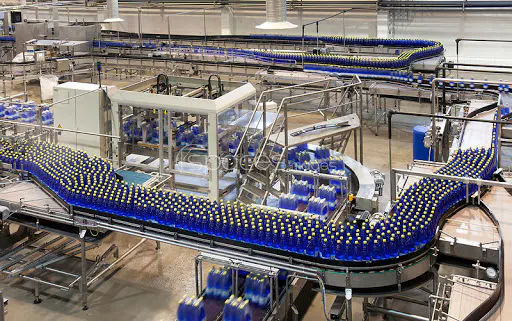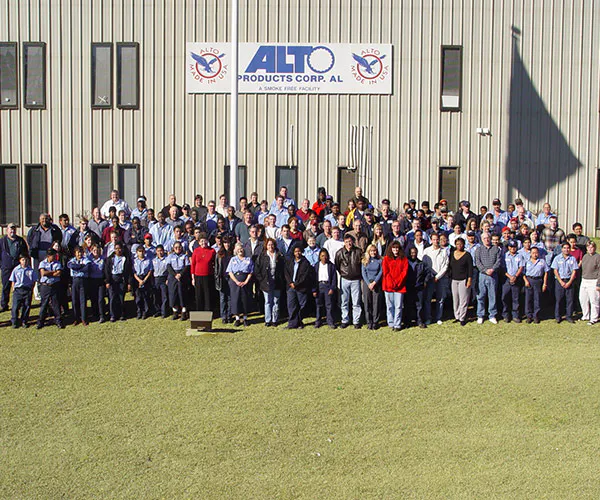Bottling company keeps production lines running
When a beverage bottling company was looking for a mobile-solution to replace its cumbersome, outdated desktop solution, it turned to UpKeep.

Challenge
A beverage bottling business was running its maintenance system on a very old stand-alone computer program, which was cumbersome and failed to produce necessary reports to help the company make better maintenance decisions.
The antiquated solution limited the number of users and required an awkward log-in process. In order to attach files, users had to upload files and then download files; it was not drag-and-drop. Operators were struggling because the system was very strict on how data was entered and what choices were available. If a technician didn’t enter information exactly right, the system would report errors. And the vendor was not interested in making updates to improve this company’s experience. All of these reasons necessitated a change.
Solution
The bottling company selected UpKeep as its solution of choice. Although the planner and the maintenance team at the business were used to working with a maintenance program, it was much easier to give the operators access to UpKeep’s mobile-first solution.
Each operator was working on different pieces of equipment, and the company wanted to provide an online solution that would be easier to use. The management team appreciated the fact that entering a work request was simple and operators could easily attach a screenshot or picture to better illustrate the problem.
In addition, the maintenance manager wanted to keep a closer eye on maintenance requests and associated costs. Being able to see how much maintenance was required on each piece of equipment allowed the manager to make replacement decisions in a more timely manner. UpKeep helped the maintenance team understand the constantly changing status of all its machinery.
Successful Implementation Started With Cultural Change
During the first year, the company essentially started from scratch. The team couldn’t transfer any data from the old program and didn’t see a great deal of value in that old information.
As a result, the business built its asset data in UpKeep from the ground up. The team tried to adapt all the opened maintenance orders that were important and added information from there.
More importantly, the organization used the first year to shift the culture around maintenance, build trust between the operators and the maintenance technicians, and train individuals on using UpKeep.
Since the company’s employees were used to a difficult system, they were skeptical of the new solution. Operators had learned that they couldn’t rely on maintenance so they’d try to fix their own problems, often making them worse. The maintenance technicians were often overwhelmed by emergency requests and were often not very responsive to operators.
After working hard to improve communication and transparency, the investment in cultural change paid off. After about 18 months, operators could see that the maintenance team was much more structured and planned, getting things done, and much less chaotic and more calm.
Better Communications Improves Trust
Once work orders are entered into UpKeep, the operators can see their progress in the system and obtain feedback. Anyone who makes a maintenance request can easily see whether a work order is on hold and why or if it’s in progress. It helped operators to trust that the maintenance team was really doing something.
Since the bottling company runs shifts around the clock five days each week, UpKeep also helps keep all the operators aware of what’s happening as they move through shift changes.
For example, when afternoon operators arrive, they can see what work orders were submitted by the morning team. UpKeep allows operators to see what’s being worked on and any problems they need to be aware of. The technicians are putting in as much information as possible, including when spare parts are ordered and expected. This process and communication increases trust, and operators feel like they know what’s happening on their machine. They know who is working on it and when it’s fixed. This process builds trust across the entire organization.
Greater Efficiency and Better Control
UpKeep allows the company to work more efficiently as a team, plan and schedule according to workload and skill levels, and recognize group accomplishments.
The maintenance planner divides work according to operator availability and skill level, and the company also tries to cross-train all the technicians as much as possible.
During the company’s weekly meetings, the team can celebrate things like no outstanding work orders. UpKeep also helps manage work orders when individuals take a vacation or are out ill, reallocating the work as needed. The team is using the system because it’s more effective for them, and it helps them control their own work day.
Preventive Maintenance Keeps Production Lines Running
During the second year, the company began to focus on preventive maintenance, looking at both equipment history from the old and new systems.
Since the bottle-filling production lines handle an ongoing stream of bottles, a single machine breakdown can shut the whole line off. The maintenance team needs to keep that line running all the time because every breakdown costs a significant amount of money from lost production and labor.
UpKeep also helps the company better analyze performance equipment. For example, if work orders show that a particular machine breaks down monthly, preventive maintenance can be scheduled every third week. That allows the company to have parts in stock and get in front of the breakdown, resulting in keeping production lines running.
Once incident involved a major drive on one of the machines that had bearings on each end. The operator noticed loud noises, made a temporary repair, and put in a new work order for the following month. When the work order came up, the team assessed the gear again and planned for a major overhaul when the line was planned to be down.
In the past, the company often kept moving the deadline to keep the line running until a major breakdown occurred, which would result in lengthy downtime. The company began experiencing fewer breakdowns due to better preventive maintenance.
Measurement and KPIs Top Future Priorities
As the company moves forward, the team plans to focus more on establishing key performance indicators (KPIs) and measuring its progress against those KPIs to help management make better, smarter business decisions in the long run.
Want to keep reading?

Equipment / Manufacturing
Alto Products moves from reactive to preventive maintenance

Equipment / Manufacturing
Innovative Micro Technology creates a safety-focused culture

Equipment / Manufacturing
Columbia Fruit saves money with organized inventory
4,000+ COMPANIES RELY ON ASSET OPERATIONS MANAGEMENT
Leading the Way to a Better Future for Maintenance and Reliability
Your asset and equipment data doesn't belong in a silo. UpKeep makes it simple to see where everything stands, all in one place. That means less guesswork and more time to focus on what matters.


![[Review Badge] GetApp CMMS 2022 (Dark)](https://www.datocms-assets.com/38028/1673900459-get-app-logo-dark.png?auto=compress&fm=webp&w=347)
![[Review Badge] Gartner Peer Insights (Dark)](https://www.datocms-assets.com/38028/1673900494-gartner-logo-dark.png?auto=compress&fm=webp&w=336)
